
Current Affairs is the most important area in all competitive exams. But the difficulty level is very high. That’s why; many aspirants get confused, how to select Current Affairs for Preparation of Competitive Examination? In this Post, Daily Current Affairs 2 June 2021, we have tried to cover each and every point and also included all important facts from National/ International news that are useful for upcoming competitive examinations such as UPSC, SSC, Railway, State Govt. etc.
Daily Current Affairs 2 June 2021
RBI cancels licence of Pune-based Shivajirao Bhosale Sahakari Bank
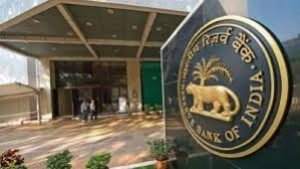
Recently the Reserve bank of India (RBI) has cancelled the licence of Shivajirao Bhosale Sahakari Bank, Pune as the lender does not have adequate capital and earning prospects.
The central bank has taken this decision due to lack of sufficient capital and earning potential with the bank.
Further, the bank said that the bank does not comply with certain provisions of the Banking Regulation Act, 1949.
Customers deposit their money in banks with full confidence, but many times the banks are not able to work according to the rules of Reserve Bank of India (RBI). In such a situation, the central bank takes action on them.
RBI imposes penalty on most banks. But in some circumstances he has to cancel the license in the interest of protecting the customers.
NHB launched pilot phase of Cluster Development Programme
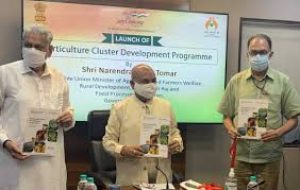
National Horticulture Board (NHB) launches pilot phase of Cluster Development Programme covering 11 states/UTsThe programme will address all major issues related to the Indian horticulture sector including pre-production, production, post-harvest management, logistics, marketing and branding.
The programme is designed to leverage geographical specialisation and promote integrated and market-led development of horticulture clusters.
It will be implemented by the National Horticulture Board (NHB) of the Ministry of Agriculture and Farmers’ Welfare.
The programme aims at growing and developing identified horticulture clusters to make them globally competitive.
The programme will benefit about 10 lakh farmers and is expected to attract an investment of Rs. 10,000 crore when implemented in all the 53 clusters.
Results of All India Trade Test for Craftsmen Training Scheme

The Directorate General of Training (DGT), under the aegis of Ministry of Skill Development & Entrepreneurship (MSDE), announced results of the All India Trade Test (AITT) held in December 2020, for CTS Academic session 2020-2021.
The scheme has been implemented in about 15,000 Industrial Training Institutes (ITIs) across the country for 2018 session (2nd year) & Trainees having supplementary in Practical and ED only.
The Craftsmen Training Scheme (CTS) was introduced by the Government of India in year 1950 by establishing about 50 Industrial Training Institutes (ITIs) for imparting skills in various vocational trades.
It is implemented by the Directorate General of Training (DGT), under the aegis of Ministry of Skill Development & Entrepreneurship.
It’s objective is to ensure a steady flow of skilled workers in different trades for the domestic industry.
Index of Eight Core Industries for April, 2021

The Office of Economic Adviser, Department for Promotion of Industry and Internal Trade is releasing Index of Eight Core Industries (ICI) for the Month of April, 2021.
ICI measures combined and individual performance of production in selected eight core industries viz. Coal, Crude Oil, Natural Gas, Refinery Products, Fertilizers, Steel, Cement and Electricity.
The Eight Core Industries comprise 40.27 percent of the weight of items included in the Index of Industrial Production (IIP).
ICI measures combined and individual performance of production in selected eight core industries viz. Coal, Crude Oil, Natural Gas, Refinery Products, Fertilizers, Steel, Cement and Electricity.
The combined ICI stood at 126.7 in April 2021, which increased by 56.1 per cent (provisional) as compared to the Index of April 2020.
This high growth rate in April 2021 is largely due to low Index base in April 2020 consequent to the low industrial production across all sectors caused by nationwide lockdown imposed to contain spread of Covid-19 last year.
The growth rate of ICI during April-March 2020-21was (-) 6.5% (P) as compared to the corresponding period of last FY.
Health Ministry’s event to mark the ‘World No Tobacco Day’
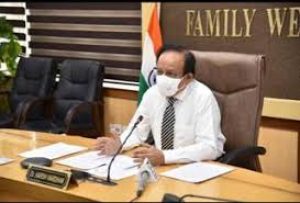
Union Health Minister Dr. Harsh Vardhan organized an event on the occasion of World No Tobacco Day that smokers face a 40-50% higher risk of developing severe disease deaths from COVID-19.
He further expressed that use of tobacco in the country has decreased by six percentage points from 34.6% in 2009-10 to 28.6% in 2016-17.
In India, over 1.3 million deaths are attributable to tobacco use every year amounting to 3500 deaths per day, imposing a lot of avoidable socio-economic burden.
Smokers face a 40-50% higher risk of developing severe disease deaths from COVID-19.
As per the WHO study titled “Economic Costs of Diseases and Deaths Attributable to Tobacco Use in India”, the economic burden of diseases and deaths attributable to tobacco use of tobacco in India was as high as Rs. 1.77 lakh crores, amounting to approx 1% of GDP.
Government gave approval to four firms under PLI scheme for bulk drugs

The government of India gave approval to four waitlisted firms under the production linked incentive (PLI) scheme for domestic manufacturing of bulk drugs.
The department of pharmaceuticals had launched the PLI scheme for promotion of domestic manufacturing of critical bulk drugs – Key Starting Materials (KSMs)/ Drug Intermediates and Active Pharmaceutical Ingredients (APIs).
It envisages setting up greenfield plants in four different target segments with a total outlay of Rs 6,940 crore for the period 2020-21 to 2029-30.
Setting up of these plants will make the country self-reliant to a large extent in respect of these Bulk drugs. The disbursal of production linked incentive by the Government over the six years period would be up to a maximum of about Rs.6,000 cr.
India’s first indigenous temperature data logger for the cold chain management

Indian Institute of Technology, Ropar (IIT Ropar) in Punjab has developed a first-of-its-kind IoT device – AmbiTag that records real-time ambient temperature during the transportation of perishable products, vaccines and even body organs and blood.
That recorded temperature further helps to know whether that particular item transported from anywhere in the world is still usable or perished because of temperature variation.
AmbiTag is a first-of-its-kind IoT device that records real-time ambient temperature during the transportation of perishable products, vaccines and even body organs and blood.
This information is particularly critical for vaccines including Covid-19 vaccine, organs and blood transportation.
Shaped as USB device, AmbiTag continuously records the temperature of its immediate surroundings “from -40 to +80 degrees in any time zone for a full 90 days on a single charge.
The device has been developed under Technology Innovation Hub – AWaDH (Agriculture and Water Technology Development Hub) and its Startup ScratchNest. AWaDH is a Govt of India project.
Delhi HC dismisses plea seeking to halt Central Vista work

The Delhi High Court dismissed a petition seeking to halt the construction activities at the Central Vista Avenue Redevelopment Project in view of the recent surge in COVID-19 cases.
It remarked that there was no reason for the court to suspend the construction activities as the workers were staying at the project site, and “COVID-19 protocols are adhered to and COVID-19 appropriate behaviour is being followed”.
The petitioners had argued that the project was not an essential activity and hence, it could be put on hold for now during the pandemic.
The court noted that the work at the Central Vista Avenue Redevelopment was part of the Central Vista Project and of vital public importance and the legality of the project had been upheld by Supreme Court.
The Central Vista is a 3 km stretch in the heart of New Delhi that runs from the Rashtrapati Bhavan to India Gate. It is flanked by large green spaces and significant structures such as Parliament, the Secretariat buildings and the National Archives.
Second list of 108 Military items under Self-Reliance & Defence Exports
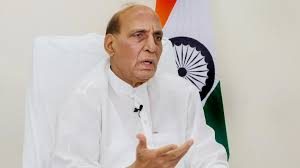
Ministry of Defence recently notified the ‘second List’ to boost indigenisation in the Defence sector. It has approved a proposal of the Department of Military Affairs, Ministry of Defence (MoD) to notify the ‘Second Positive Indigenisation List’ of 108 items.
The notification comes right after the ‘First Positive Indigenisation’ List comprising 101military items which was notified in August 2020.
This will give further boost to indigenisation with active participation of public and private sector for fulfilling the twin objectives of achieving self-reliance and promoting defence exports.
All the 108 items will now be procured from indigenous sources as per provisions given in Defence Acquisition Procedure (DAP) 2020.
The second list (enclosed) lays special focus on weapons/systems which are currently under development/trials and are likely to translate into firm orders in the future.
This second list is planned to be implemented progressively with effect from December 2021 to December 2025.
The ‘Second Positive Indigenisation List’ comprises complex systems, sensors, simulator, weapons and ammunitions like Helicopters, Next Generation Corvettes, Air Borne Early Warning and Control (AEW&C) systems, Tank Engines, Medium Power Radar for Mountains, MRSAM Weapon Systems etc.
Maratha community can take benefits under 10% EWS quota
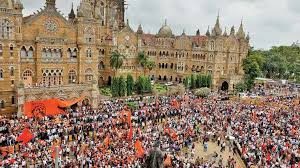
The Maharashtra government announced that members of the Maratha community would be accommodated in the 10% quota for Economically Weaker Section. An order was issued by the General Administration Department of the state government.
In a bid to extend relief to the Maratha community in the State, the tripartite Maha Vikas Aghadi (MVA) government in Maharashtra extended the benefits of reservation for the Economically Weaker Section (EWS) to the Socially and Economically Backward Class (SEBC).
Previously, the government had decided that the Maratha community could not take advantage of the 10% EWS category as Maratha reservation was in force in the State.
The Supreme Court, however, scrapped the SEBC reservation in jobs and education, making it possible for the State government to extend the benefit of the EWS quota to the Marathas.
As per the government resolution, a person fulfilling the criterion for EWS would be eligible for 10% reservation in educational institutes, barring minority institutes.
This would also be applied for State government recruitment. The resolution said the reservation would be above the existing reservation.
It also stated that the benefit would be available from September 9, 2020, when the apex court brought an interim stay on the reservation, to May 5, 2021, when the final verdict was announced.
India’s GDP shrank by 7.3% in 2020-21
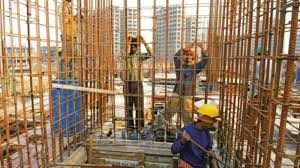
India’s Gross Domestic Product (GDP) contracted 7.3% in 2020-21, as per provisional National Income estimates released by the National Statistical Office.
It marginally better than the 8% contraction in the economy projected earlier. GDP growth in 2019-20, prior to the COVID-19 pandemic, was 4%.
The Gross Value Added (GVA) in the economy shrank 6.2% in 2020-21, compared to a 4.1% rise in the previous year.
Only two sectors bucked the trend of negative GVA growth — agriculture, forestry and fishing, which rose 3.6%, and electricity, gas, water supply and other utility services (up 1.9%).
GVA for trade, hotels, transport, communication and broadcasting-related services saw the sharpest decline of 18.2%, followed by construction (-8.6%), mining and quarrying (-8.5%) and manufacturing (-7.2%).
GDP had contracted 24.4% in April-June 2020, followed by a 7.4% shrinkage in the second quarter. It had returned to positive territory in the September to December quarter with a marginal 0.5% growth.
Blind Chinese man Zhang Hong climbs Mount Everest
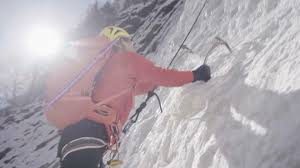
Zhang Hong, from China scaled the tallest peak in the world from the Nepal side, becoming the first blind man in Asia and the third in the world to climb Mount Everest.
Zhang completed the 8,849 metre-high Himalayan feat on May 24 along with three high altitude guides, and returned to the base camp.
Erik Weihenmayer became the first blind person to reach the summit of Mt. Everest. In 2008 he climbed Carstensz Pyramid on the island of Papua New Guinea, completing the Seven Summits, the highest point on every continent.
Bachendri Pal was an Indian mountaineer who in 1984 became the first Indian woman to reach the summit of Mount Everest.





